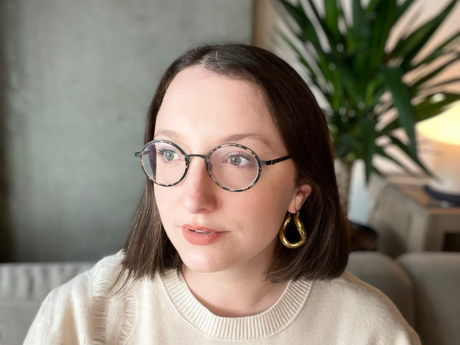Award Winners
Cecil Hemley Memorial Award - 2023
Jane Huffman

Three Odes
1.
I asked my brother death
About his journey
To the center of the world
Where he lost his life
In winter but bought it back
In spring with money
That he siphoned from our
Mother’s wedding ring
He said my sister death
Is not as cunning as you think
He brought to me his little
Well of ink whenever I asked
And let me drink a little
From his flask of life and pleaded
With me when I left
He begged me not to leave
And so I sat with death
Beneath our mother’s dogwood
Tree my brother and his
Death on either side of me
2.
I’ve mourned my living
brother many years.
This is the heavy
table of my work. I lug
the heavy table
of my work around
all day so I am never rid
of it. I am never rid
of it––the work
that carries me like I’m
a tired child sleeping
in its arms. I sleep in
my brother’s arms.
It takes all his strength
to carry me.
With all my strength,
I lug my brother up
the hill where we,
as children, buried pill
bugs in finger holes.
My brother buried pill
bugs in the ground.
I dug them up. I dig
my brother’s body
from the ground,
from beneath the heavy
table of the Earth.
He lugs around the heavy
table of the Earth,
the maple tree that grows
out of his head. The maple
tree that grows out
of his head is heavy
with the longing
of the dead. My brother’s
death is long, and heavy
as a year. I’ve mourned
my living brother all my life.
3.
I don’t know
my brother as a man.
A force of nature,
rather, like the wind
that brushes up
against the house
because it must.
He makes demands.
He carries with him
fallen leaves
and mites and owl
pellets ridden
with the shattered
bones of mice
because he must.
I didn’t know
my brother as a boy.
Burgeoning, we parted
into different woods.
He, to using
his own shadow
like a mattress
on the floor
where he could pull
his body from his mind
like pulling cornsilk
off the husk. And I
to using sadness
like a broom to sweep
my shadow up.
Note: Section two of this poem appears in a modified version of the “Duplex” form, which was originated by Jericho Brown, to whom I owe my thanks.
Natalie Shapero on Jane Huffman
“Three Odes” is a poem of otherworldliness set in our actual world, a poem that stands out for its deft use of slippage and subversion. Death is the central condition of this poem. Or is it the central character? The speaker's brother has died, but he remains present. Or is it that he lives, but in an absent way? Just when grief is described as a “heavy table,” suggesting that it is ominously unmovable, the next run of lines tell us that the speaker is in fact carrying this table, incessantly, from place to place. And the poem goes on to stand still, and the poem goes on to move, and the poem turns and turns and proceeds down the page with eerie sonic chiming that echoes like the past made eternal. What is ultimately evoked so well is the sense of suspension that comes with a loss of great depth. “Three Odes” holds the impulses of presence and absence in complementary and conflicting ways, executing a complex feat with deceptively simple language and a commitment to a strange stoniness and satisfies and unsettles all at once.
**
Jane Huffman’s debut poetry collection, Public Abstract, was the winner of the 2023 APR/Honickman First Book Prize. Her poems have been published in The New Yorker, Poetry, The Nation, and elsewhere. She was the recipient of a 2019 Ruth Lilly and Dorothy Sargent Rosenberg fellowship from the Poetry Foundation. Jane has her MFA from the Iowa Writers’ Workshop and is a Ph.D. student in creative writing at the University of Denver. She is the founder and editor-in-chief of Guesthouse, an online literary journal.
